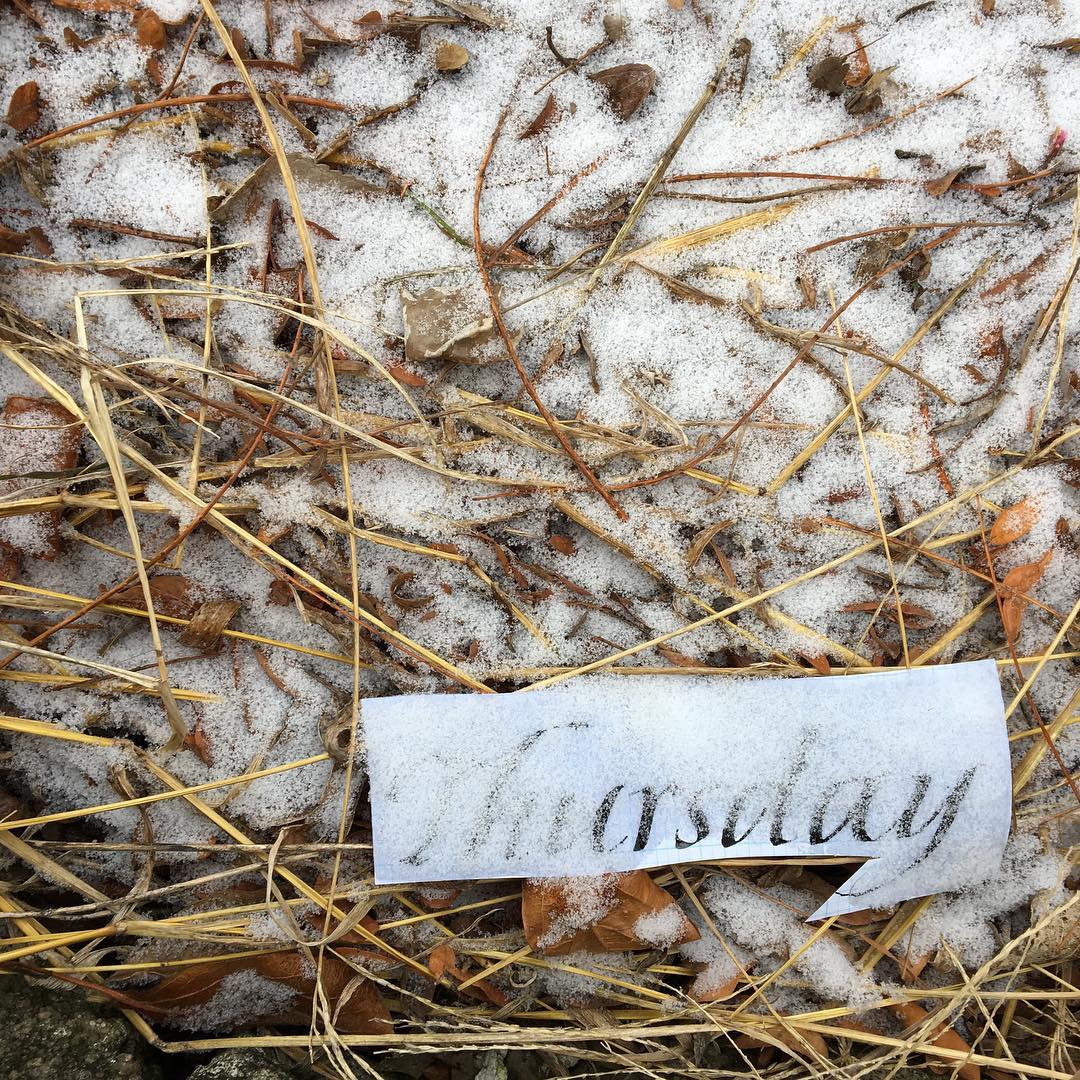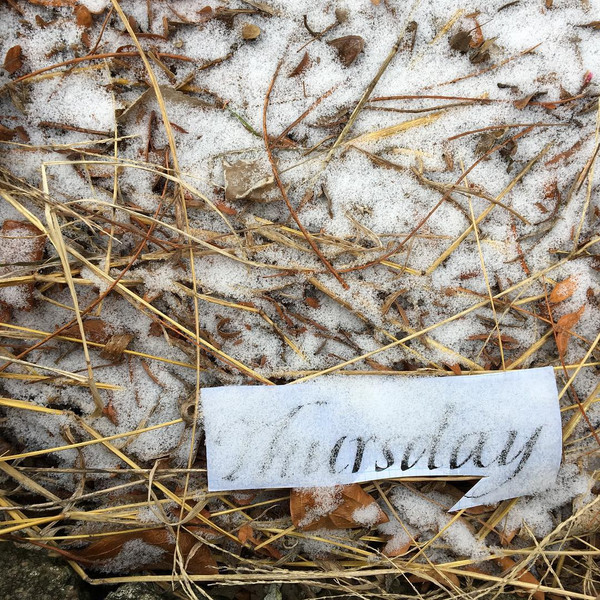Showing Up
9th May 2019
I recently decided to get back to blogging, and I decided as part of that project, I needed to be consistent about it. Sounds straightforward enough. But when it's suddenly May and chaos has exploded into your life and your week is full of appointments and meetings and a long to-do list that doesn't seem to be budging, the following thoughts have stolen in as Thursday (i.e. blogging day) approached:
I could do it tomorrow.
I could skip this week.
No one will notice if it's late.
Why, again, do I need to be writing every week?
Every post I've put up since deciding to blog weekly has been written after kids went to bed or before they woke up – so, not exactly easy to squeeze in. But this week is the first time I really just didn’t want to do it. And lined up reasons to excuse myself.

But, look at me! Here I am, showing up. Because my desire to blog in part stems from the need to return to writing as a creative practice. I’m happier when I’m writing. I have a fuller interior life when I’m writing. Rhythm and consistency are not just about patting yourself on the back for staying on schedule. There’s a more important reason, one that Mary Oliver articulates so perfectly in A Poetry Handbook:
If Romeo and Juliet had made appointments to meet, in the moonlight-swept orchard, in all the peril and sweetness of conspiracy, and then more often than not failed to meet—one or the other lagging, or afraid, or busy elsewhere—there would have been no romance, no passion, none of the drama for which we remember and celebrate them. Writing a poem is not so different—it is a kind of possible love affair between something like the heart (that courageous but also shy factory of emotion) and the learned skills of the conscious mind. They make appointments with each other, and keep them, and something begins to happen. Or, they make appointments with each other but are casual and often fail to keep them: count on it, nothing happens.
Gentle poets can twist the knife better than any villain, no? “Count on it, nothing happens.” It’s painful because it’s true. And true of every kind of creative expression. It’s all too easy to say that I want to be writing, and I want to be doing more of my own artwork and projects, but work and kids and time and blah blah blah. And the weeks and months march on, and I’m not amassing, little by little, the work I say I so desperately want to be doing.
So! It’s ultimately time for me to stop excusing myself and just decide to show up, rain or shine, good mood or foul, full of thoughts to share or so empty I’m convinced nothing will come out. Because if I’m holding up my part of the bargain, something will happen. It will. It always does. Oliver continues:
The part of the psyche that works in concert with consciousness and supplies a necessary part of the poem—the heat of a star as opposed to the shape of a star, let us say—exists in a mysterious, unmapped zone: not unconscious, not subconscious, but cautious. It learns quickly what sort of courtship it is going to be. Say you promise to be at your desk in the evenings, from seven to nine. It waits, it watches. If you are reliably there, it begins to show itself—soon it begins to arrive when you do. But if you are only there sometimes and are frequently late or inattentive, it will appear fleetingly, or it will not appear at all.
Why should it? It can wait. It can stay silent a lifetime.
Twist it a little more, Mary. We’re not bleeding enough yet.
When I was younger, I thought I would die if I didn’t write. I didn’t understand how my life could be lived without writing. This did not feel like dramatic or overblown emotion at the time—it felt, simply, like fact. And then I grew up and worked and had kids and all kinds of responsibilities that made my days full and my life productive, and it occurred to me that I could go on that way forever without ever writing another word, and I’d still survive and have a pretty darn good life. And the world is full of extraordinary writers, and it would hardly cause the tiniest ripple in the universe if I just… didn’t.
And I do believe that, all of it. But I have also learned that we shouldn’t ignore the things that tug patiently and quietly at our consciousness, and that even if the only person who cares about whatever expression we long to express is ourselves, that’s more than reason enough to do the work. We are ultimately our most necessary and important projects, right? And maybe if we do honor those quiet and persistent longings, we will find and connect with others who appreciate our words.
At Ted Kooser’s eightieth birthday celebration at Chapters Bookstore the week before last, I asked him if he ever took a day off of writing. He doesn’t. He hasn’t. He has risen at 4:30 a.m. every day for his entire adult life to write. He has shown up, consistently and reliably, giving his metaphorical Romeo and Juliet a lifetime to create romance and passion and drama. They have written thousands of poems! Nonfiction! Children’s books! They have made magic, he and his date with himself, every single day. And it is perhaps no surprise to see, in turn, the impact that his work has had upon his readers and fans, who are legion.
All because he has shown up when he decided to for sixty years. Surely I can do it for eight weeks.

